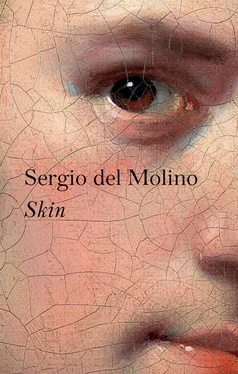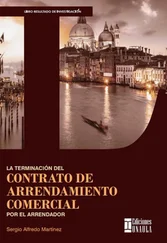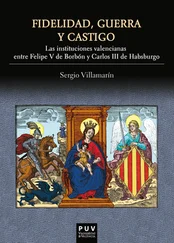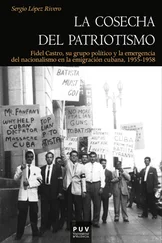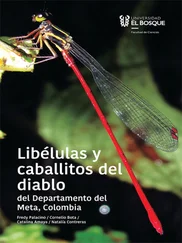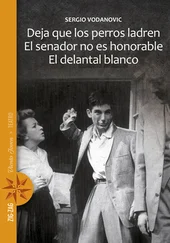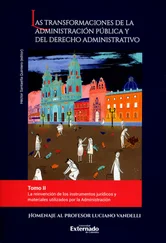When Nadezhda, Stalin’s second wife and mother to Svetlana, committed suicide, it made for a truce between the two men. In November 1932, Nadezhda Alliluyeva shot herself in her bedroom, and Stalin didn’t find out until the next day. Kirov consoled his comrade, shielded him, and heaped all the manly affection on him that one furious, sentimental Bolshevik can heap on another – which, though never a great deal, is at least colourful. Come the summer of 1933, he was sure to keep his Sochi appointment, and in their long hours together in the pool did what he could to reinvigorate his friend, who was blamed by the Moscow gossip mill for Nadia’s course of action.
You don’t believe any of that, do you, Kirov?
How can you possibly suggest such a thing, Iosif Vissarionovich?
Raise a glass for Nadezhda, dear friend, raise it and say one of those nice things only you can come up with.
They went back to Moscow in the autumn, and all of the vozhd ’s energies were absorbed by the party and the state; gradually he forgot about Nadezhda, and about the gentle consolations offered by his friend, whom, in his far-off Leningrad viceroyalty, he began to see as a schemer, a threat. Every now and then Kirov spoke to him of Ukraine, of the need to put an end to whatever the USSR was up to there, of the advisability of ceasing to starve all the peasants.
Oh, Kirov, what you wouldn’t do to win a round of applause from the people, who cheer you on, who adore you. There’s nothing you wouldn’t do – including poisoning me, including mounting my head on the highest heights of the Kremlin.
The summer of 1943 was not as nice. The Sochi sun went on warming the wicker armchairs with the same gentle rays, the Gorodki games kept everybody entertained, as ever, and as ever Artyom and Kirov accompanied him in his eternal, cigarette- and wine-fuelled pool sessions, but the flavour of everything had changed. The memory of Sergeyev merged with that of others who had departed, Nadezhda included. The absences began to build up, and there are only so many ghosts a man can live with at once.
It was no longer possible to hide the locking of horns between the old friends, a drama that had been transferred into the Politburo meetings. Stalin knew that Kirov had had the idea of betrayal dangled before him, but that he had refused to strike. Even so, the distance between the two friends was unbearable. As the sun went down with them lounging against the pool’s edge, they felt the water grow cool earlier and earlier.
It’s time to get out, dear Iosif Vissarionovich, it’s going to get dark.
No, you go, I’m going to stay and smoke a while longer.
Alone?
I’m always alone, Sergey.
Another autumn fell over the Black Sea, and Stalin went back to the Kremlin, and Kirov to his Leningrad, and the USSR and the party went on functioning with the same unwavering hysteria as ever, until the first of December came around.
That morning, a man entered the Smolny Institute, the Bolshevik temple in Leningrad where Vladimir Ilyich had made the slogan ‘all the power to the Soviets’ a reality and where Trotsky had assembled the Red Army. Kirov, as head of the party in Leningrad, had his office there, and he moved through its hallways and tsarist staircases as though it were his home. In 1934 the Bolsheviks believed that all their enemies had been defeated, and didn’t bother with guards or other security measures. Hence this individual being able to walk in at his leisure, fall in behind Kirov as he walked one of the hallways, and shoot him dead with the pistol hidden in his jacket.
How Stalin wept in the Kremlin. How quick Leningrad was to curse the red blood stain on the Smolny carpet. Stalin roared over his dead brother’s body, and when Stalin roared, the entire USSR roared. All state apparatus writhed in pain and rage and clamoured for vengeance. For no guilty party to escape. For his head to be put on show before all Soviet people, as a lesson to the enemies and murderers of the universal proletariat. For evidence to be found by any means necessary, for the suspects to be tortured until they could no longer even confess, for want of teeth and tongues with which to recount their crimes.
Of course, there were those who believed it to be Stalin’s doing, a way of ridding himself of a rival, but not as many as would go on to believe it afterwards. In 1934, the scales had fallen from the eyes of very few people, and most of those were taken for lunatics or, what was worse, bourgeois reactionaries. In later years, Stalin’s part in Kirov’s death was rather beside the point, given that, compared with the industrial slaughter he went on to unleash, it almost showed him in a good light; but at that time it was beyond most people to imagine. Which was why, when Stalin accused the Trotskyites and the enemies of the people of having driven a dagger into his very heart, almost nobody found any reason to doubt the sincerity of his lament and of his understandable clamour for revenge.
Sergey’s death was only the first part of his plan. The second was to lay bare the plot. The party, he said, was riddled with agents provocateurs , from top to bottom. Trotskyites in the employ of the West, enemies of the people boring through the victory of the proletariat like termites. A deep cleanse was required, and Kirov’s funeral, attended by half the country, with Stalin presenting himself as visibly undone by the grief, was the opportune moment to announce it. The Trotskyite traitors had struck a blow to the very heart of the USSR, in the inviolable Smolny Institute no less, killing a hero of the people. Kirov’s body, still warm, called for revenge: either we properly disinfect the country, or the rats and the parasites will eat us all.
In the years that followed, millions are believed to have been sent to the gulags or to one of the Cheka death chambers (designed expressly with the cement floors on a slight incline to allow the blood to flow away, and with a system of hose pipes so that everything could be sluiced down in minutes and made ready for the next in line). Though Stalin never missed a summer in Sochi, the documents on his round table had steadily less to do with steel production and motorway building. Almost all were lists of names. In his wicker armchair before supper, with the Black Sea breeze not caressing his skin, still covered up with long shirts and trousers as he was, he gave the go-ahead for the following day’s executions. His daughter Svetlana came over to say goodnight, and he would tickle her or make up a joke in Georgian, and away Svetlana would go to bed, while he, scratching his psoriasis with one hand, used the other to calculate the numbers detained and killed that day. He would be angry if the lists were short, and would laugh and make jokes, pipe in mouth, if they were long, since that meant the state was doing what it ought to be doing.
On the evening of 25 August 1936, more than a year and a half after Kirov’s death, Stalin was in Sochi. He is said to have been out in the late-summer sun, looking tanned and relaxed. At 20:48, eating an al fresco supper, he received a telegram from Moscow: ‘The Politburo has decided to reject the appeals and carry out the sentence this very evening.’ The vozhd ’s only reply was to acknowledge receipt, and he went on with his supper as the sun began to drop into the Black Sea. What a marvellous country it was. Nowhere could there be a sunset to rival the ones on that blessed coast. Breaking with custom, he retired early that night. He surely would have read in his room, he never went to sleep until the wee hours, but he put aside affairs of state and let his aides have a rest. Comrade Stalin appeared at peace. He transmitted a very placid sort of happiness, far more unsettling than his usual, orgiastic sort of happiness. How strange for the wine not to flow, for popular ballads not to be playing on the gramophone, and for there to be none of his friends present cracking jokes. Those who knew most about what was going on in Moscow were the most disturbed. The telegram had said that, in a few hours’ time, Kamenev and Zinoviev would be lined up and shot.
Читать дальше
